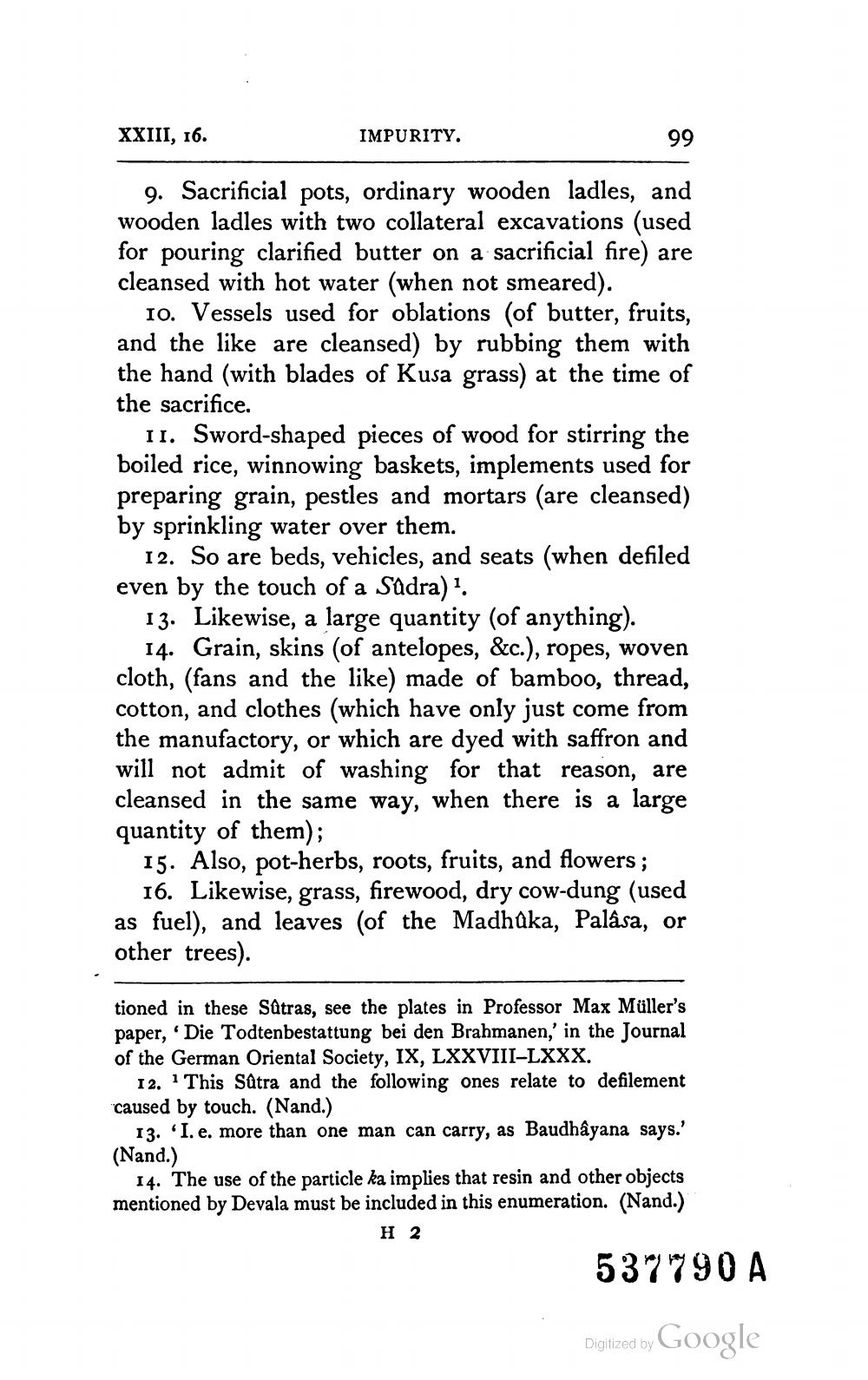________________
XXIII, 16.
IMPURITY.
99
9. Sacrificial pots, ordinary wooden ladles, and wooden ladles with two collateral excavations (used for pouring clarified butter on a sacrificial fire) are cleansed with hot water (when not smeared).
10. Vessels used for oblations (of butter, fruits, and the like are cleansed) by rubbing them with the hand (with blades of Kusa grass) at the time of the sacrifice.
II. Sword-shaped pieces of wood for stirring the boiled rice, winnowing baskets, implements used for preparing grain, pestles and mortars (are cleansed) by sprinkling water over them.
12. So are beds, vehicles, and seats (when defiled even by the touch of a Sudra).
13. Likewise, a large quantity (of anything).
14. Grain, skins (of antelopes, &c.), ropes, woven cloth, (fans and the like) made of bamboo, thread, cotton, and clothes (which have only just come from the manufactory, or which are dyed with saffron and will not admit of washing for that reason, are cleansed in the same way, when there is a large quantity of them);
15. Also, pot-herbs, roots, fruits, and flowers;
16. Likewise, grass, firewood, dry cow-dung (used as fuel), and leaves of the Madhuka, Palása, or other trees).
tioned in these Sätras, see the plates in Professor Max Müller's paper, Die Todtenbestattung bei den Brahmanen,' in the Journal of the German Oriental Society, IX, LXXVIII-LXXX.
12. 1 This Satra and the following ones relate to defilement caused by touch. (Nand.)
13. 'I. e. more than one man can carry, as Baudhấyana says.' (Nand.)
14. The use of the particle ka implies that resin and other objects mentioned by Devala must be included in this enumeration. (Nand.)
H 2
537790A
Dialized by Google




